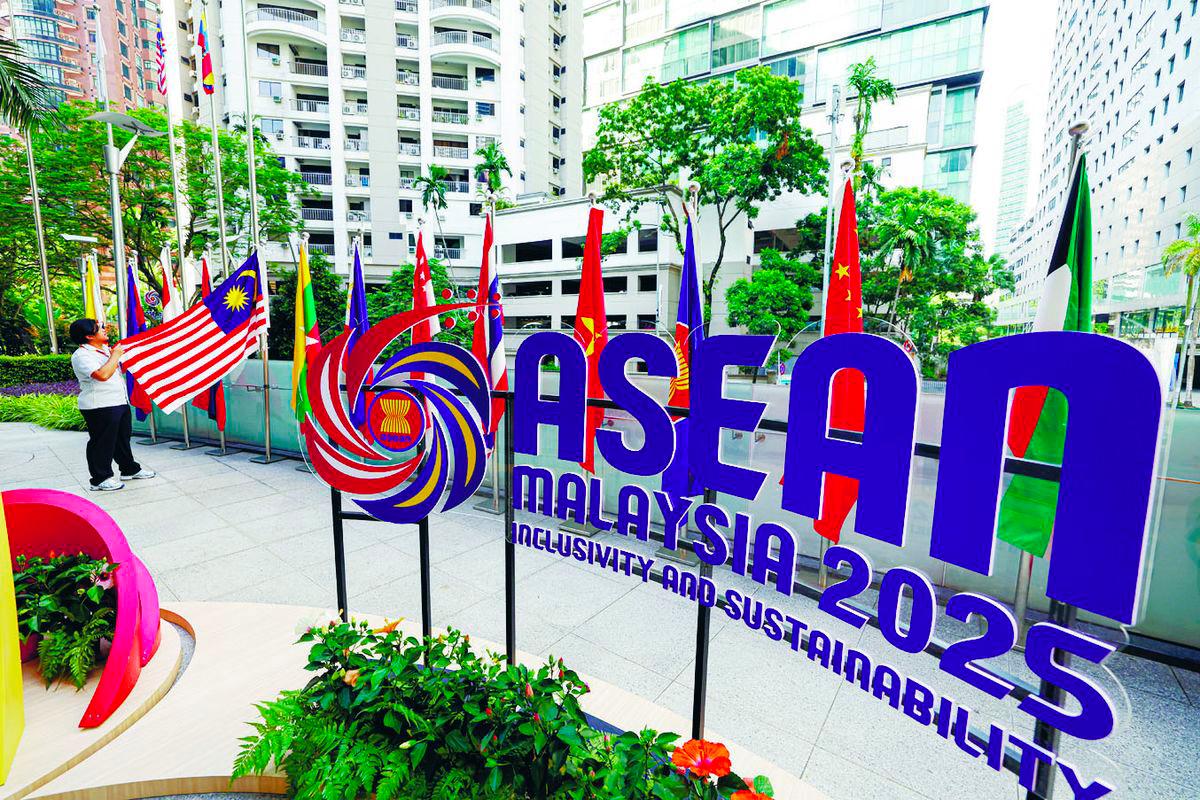AMID intensifying great power rivalry and regional flashpoints, such as the recent Thailand-Cambodia border skirmish, Malaysia is asserting itself as a credible and proactive middle power.
Its chairmanship of Asean this year has reaffirmed its long-standing foreign policy strategy of selective alignment, a pragmatic approach that allows Malaysia to build bridges between rival powers while championing Asean’s relevance in an increasingly polarised global order.
Through a principled and agile diplomatic strategy, Malaysia has positioned itself not only as a stabilising regional force but also as a convener of inclusive dialogue and multilateral cooperation.
The recent escalation of the Thailand-Cambodia border dispute, long marked by intermittent tensions, underscored the fragility of peace along Southeast Asia’s strategic frontiers.
On July 24, this simmering conflict erupted into a four-day confrontation in the Emerald Triangle, with both sides exchanging artillery and rocket fire. Thailand’s deployment of F-16 and Gripen fighter jets marked a significant escalation.
In its role as the Asean Chair, Malaysia swiftly emerged as a key diplomatic actor. Due to the precarious nature of the conflict, Kuala Lumpur hosted emergency talks on July 28 between Thai and Cambodian leaders, with Malaysia mediating the negotiations.
The presence of both American and Chinese ambassadors to Malaysia lent additional legitimacy to the process. A ceasefire was
agreed and implemented, restoring calm along the border.
Malaysia’s successful diplomatic intervention earned praise from the US, the EU and regional Asean leaders. It reinforced Malaysia’s growing credibility as a constructive and neutral middle power – one capable of managing high-stakes diplomacy while upholding Asean centrality.
The inclusion of US and China in the ceasefire negotiations further underscored Malaysia’s ability to balance competing interests without aligning too closely with any single power.
Malaysia’s leadership was further demonstrated during the 58th Asean Foreign Ministers’ Meeting (AMM-58), held from July 8 to 11 in Kuala Lumpur.
Against a backdrop of geopolitical uncertainty, the meeting advanced key regional discussions on the South China Sea, the internal crisis in Myanmar and global economic disruptions, such as escalating tariffs imposed by the US.
A series of Asean-led platforms were convened in parallel, including the Asean Plus Three meeting, Asean Post-Ministerial Conferences and Asean Regional Forum.
What set this year’s AMM-58 apart was the level of engagement from major global powers. Malaysia succeeded in bringing together foreign ministers from the US, China and Russia, an increasingly rare diplomatic convergence in today’s fragmented geopolitical climate.
Notably, US Secretary of State and Acting National Security Adviser Marco Rubio chose to prioritise the AMM-58 over scheduled visits to Japan and South Korea, a move that reflects not only Asean’s growing relevance but also Malaysia’s ability to shape the regional strategic environment.
Hosting one of the most consequential Asean meetings in recent years required more than logistical coordination; it reflected the presence
of a deeply rooted and adaptable foreign
policy strategy.
Malaysia’s selective alignment strategy enables it to maintain constructive ties with all major powers. As a middle power, this approach enhances Malaysia’s credibility, allowing it to engage across geopolitical divides with strategic flexibility.
The strength of selective alignment lies in its strategic ambidexterity. Malaysia is not bound by binary choices and can build cooperative ties with diverse partners even amid global uncertainty.
This approach proved effective during the Cold War, when Malaysia maintained strong economic and defence relations with Western powers while simultaneously engaging the Soviet Union and becoming the first Asean member to establish diplomatic ties with China in 1974.
Today, that same policy posture enables Malaysia to navigate complex dynamics involving Washington, Beijing and Moscow. Its long-standing defence relationships with the UK, Australia and New Zealand – sustained through the Five Power Defence Arrangements and indirectly connected to the US via the Bilateral Training and Consultative Group – coexist alongside active bilateral ties with China and Russia. This enduring balance reflects Malaysia’s foresight in managing volatility without appearing aligned with any one bloc.
Malaysia’s current diplomatic practice also reflects calculated and astute statecraft. It pairs bilateral engagement with active participation in multilateral platforms, using Asean mechanisms to address contentious issues in a constructive manner.
By combining dialogues with regional frameworks, Malaysia helps to minimise the risk of coercion and reinforces Asean’s role as a credible convener in regional affairs.
As the Chair, Malaysia is effectively leveraging this strategy to connect middle and smaller powers with global powers. It is helping to elevate Asean’s profile, not as a passive player or a contested geographical space for great power rivalry, but as a proactive platform for dialogue, cooperation and building shared prosperity.
That said, selective alignment is not without
its challenges. It requires constant recalibration, diplomatic agility and coherent domestic policy support.
Additionally, Asean’s consensus-driven model can limit the bloc’s ability to respond swiftly to emerging crises. Malaysia must, therefore, continue investing in Asean’s institutional capacity and enhance its diplomatic and crisis-response capabilities to sustain its effectiveness
as a regional power broker.
In sum, Malaysia’s selective alignment in foreign policy strategy offers a compelling model for middle power diplomacy in the Indo-Pacific.
By mediating conflicts, managing tensions and building inclusive coalitions, Malaysia is strengthening its international standing and reinforcing Asean’s strategic relevance while safeguarding its own national interests.
As its Asean chairmanship continues, Malaysia’s role as a bridging power is set to grow, offering the region a steady hand amid a volatile and divided global landscape.
Dr Adam Leong Kok Wey is professor of strategic studies and director of the Centre for Defence and International Security Studies at the National Defence University of Malaysia. Commenst: letters@thesundaily.com









